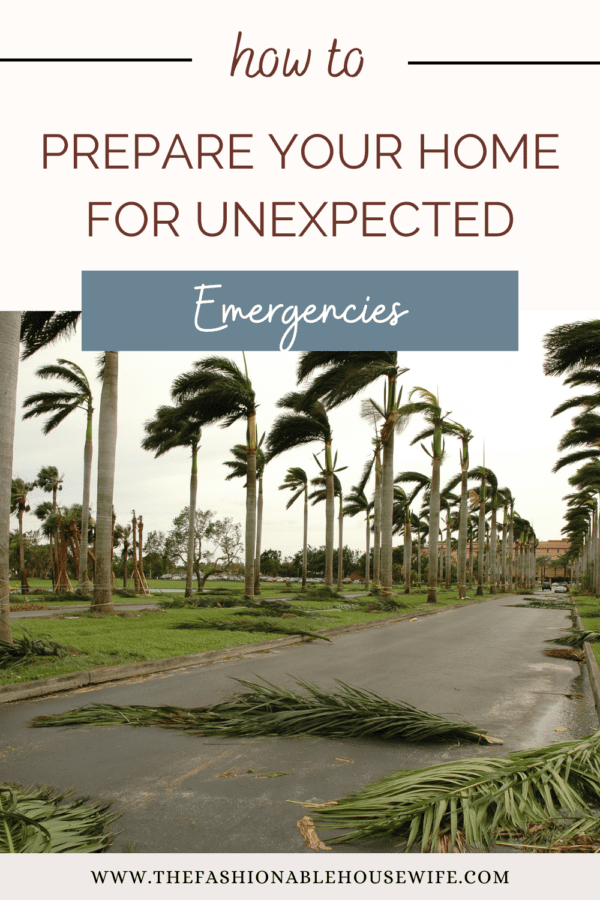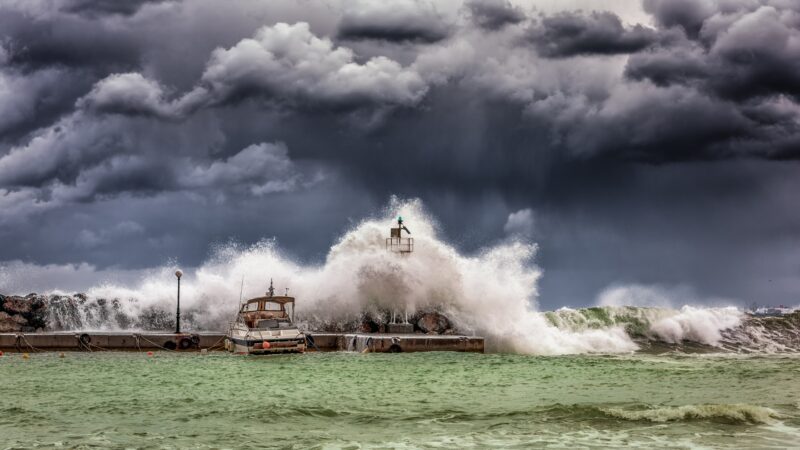
Unexpected emergencies can be scary, overwhelming, and even life-threatening, but if you’ve adequately prepared your home for such an event, you can be better equipped to handle whatever comes your way. The US had 15 weather-related disaster events in 2022 and knowing what to expect and when can help you to increase your safety and that of those around you should one occur.
With these tips, you can ensure you and your family are safe in an emergency.
Create an emergency plan
When you know what to expect during an emergency, you can better prepare yourself and your family. Make sure you plan for all emergencies, including flooding, fires, extreme weather, and power outages. Identifying what kinds of emergencies are most likely to happen in your area will help you create a plan that’s best suited for your family. You should also have a plan for what to do if you’re away from home during an emergency. This includes keeping your pets safe during an emergency by either keeping them indoors or arranging for someone to take care of them.
Buy a portable generator.
A portable generator is an essential addition to your home in an emergency. It’s a great way to stay prepared for power outages caused by storms, floods, and more. A portable power station can help prevent outages from turning into dangerous situations. A generator can also help you get the lights back on faster after an outage ends. Portable generators are relatively easy to use, but it’s essential to know how to maintain one to ensure it runs smoothly and correctly. Regularly cleaning the unit and keeping it fueled up are two quick ways to keep your generator ready for use.
Test smoke and carbon monoxide detectors
One of the best ways to test and maintain the functionality of your smoke and carbon monoxide detectors is by regularly and adequately changing the batteries in these devices. You should try these devices at least once a month to make sure they are working correctly and will alert you if they sense smoke or carbon monoxide. There should be a tester button on the device for you to press manually and test if the batteries are still working. Most units come with a 10-year battery; however, if you are in any doubt, your local fire department can assist you.

Have 3 days’ worth of food and water per person
When a natural disaster strikes, people are often forced to go without food and water for days due to road closures and damage to the water supply. Having at least three days’ worth of food and a gallon of water minimum per person on hand can help you and your loved ones stay safe in an emergency that cuts off your access to food, water, and other necessities. Make sure all the food in your emergency pantry is non-perishable and easy to eat. Stay away from foods that require refrigeration because power outages could cause them to go bad. Water is essential for life and can be found in many forms, including tap water and bottled water. While tap water is generally safe to drink, you should avoid it in the event of a flood or other disaster, as it can become contaminated with dangerous bacteria. Bottled water, on the other hand, is always clean and ready to be consumed.
Create a first-aid kit
A first aid kit may seem like an item you don’t need until an emergency occurs and you realize how important it is to have one on hand. The best first aid kit is tailored to meet your family’s needs. Whatever type of first aid kit you create, it’s essential to ensure it has all of the necessary items. You’ll want your first aid kit to include things like bandages, gauze, over-the-counter medications, disinfectants, and more to help you treat minor cuts and scrapes and common first aid emergencies like sprains and strains, broken bones, burns, allergic reactions, and more. Make sure you regularly check your first aid kit and replace any items that have expired or have become worn down. Consider keeping your first aid kit in a bin that is ready to be easily transported. This can help you be more prepared and prepared to help a friend or family member in need.
Have flashlights, candles, and batteries to use
In a power outage, you’ll want to have a few light sources available to you. Flashlights are a great way to have light without relying on candles, which can be dangerous. You should also ensure you have plenty of batteries on hand in an emergency. This can come in handy in the event of a power outage as well as a storm that knocks down power lines. Ensure you have a good supply of batteries for your flashlights and other items, such as radios. Keep various sizes in your stock to share with neighbors or replace in additional items, so you know you have enough.
Sign up for emergency alerts in your area
If you live in an area prone to dangers, such as floods, tornadoes, hurricanes, and earthquakes, sign up for emergency alerts in your area. This way, you’ll be notified when something dangerous is headed your way so you can take the necessary precautions. Most areas have emergency alert systems in place, but if you don’t know if yours does, you can call your local government office and ask. While there isn’t much you can do to avoid dangerous weather, such as hurricanes and tornadoes, you can better prepare for these events by knowing when they are headed your way and how they could affect you.
Identify safe rooms and areas on your property.
Your home may not always be the safest place during an emergency. There may be threats outside your home that you can’t control. Areas like your local river, nearby railroad tracks, or major highways can risk your health and safety. Be sure to identify safe rooms and areas on your property. Safe rooms are places where you and your family can go to be protected from threats outside your home. Be sure to include secure areas like your basement and/or outdoor spaces on your property. These areas can help you be better protected against the risks that exist outside your home.
Collect manual items you can use in an emergency
When preparing your home for unexpected emergencies, it’s essential to collect items that can be used to help you in the event of a disaster. Consider keeping things such as a manual radio, a manual can opener, a manual hammer, extra batteries, and more in an accessible place. Having items on hand that can help you prepare for an emergency can make a huge difference in your ability to survive. These items can help you stay safe and secure, no matter what crisis you find yourself in. Manual items are often cheaper than electronic alternatives and can be used in almost any situation. They can also be easily stored, transported, and used without relying on batteries or electricity.
Create an essentials list
When preparing your home for emergencies, it’s essential to list the items you want to keep on hand. This list should include items that can help you prepare for emergencies, such as weather-related events and power outages. Things to have on your list can be;
- Blankets
- Bin bags
- Warm socks
- Face masks/dust masks
- Water filters
- Hygiene products
- Matches
- Tools
- Flashlights
- Candles
- Medications
- and anything else essential to your family
Conclusion
While there is no way to know precisely what you will need in an emergency and what will happen, having a supply of items that can be of use and support your family can help you to mitigate some of the effects of natural or man-made disasters and help to keep your family safe and protected should the worst happen.



